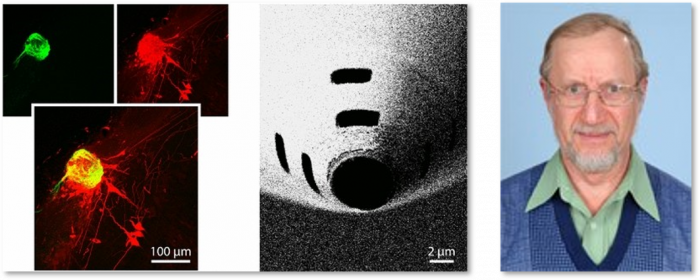 13:00-15:00
13:00-15:00
 מקוון
מקוון
Workshop on Control and Applications
On the occasion of Prof. Valery Glizer retirement
A Zoom link will be shared a day before the event.
For more details contact the Mathematics Department or Dr. Oleg Kelis
Program
Opening: Prof. Arie Maharshak, President of ORT Braude College of Engineering
1. Prof. Mikhail G. Dmitriev, Federal Research Center "Computer Science and Control" of Russian Academy of Sciences, Moscow, Russia: The work of Prof. Valery Glizer in science: the begining
2. Prof. Emilia Fridman, School of Electrical Engineering, Tel Aviv University, Israel. From Asymptotic to Constructive Lyapunov-based Methods
3. Prof. Vladimir Turetsky, Ort Braude College of Engineering, Karmiel, Israel. Robust controllability: theory and applications
Abstracts
Mikhail G. Dmitriev – The work of Prof. Valery Glizer in science: The beginning
Federal Research Center «Computer Science and Control» Russian Academy of Sciences, Moscow, Russia
The report is devoted to the scientific life, scientific work of Professor Valery Glizer.
There are discussed and highlights his work under my guidance in the field of the theory of singularly perturbed optimal control problems and applications of optimization methods during his life in the 70-80 years of XX century in Dnepropetrovsk (Ukraine) and Krasnoyarsk (Siberia, Russia) cities in the former USSR.
Emilia Fridman – From Asymptotic to Constructive Lyapunov-based Methods
School of Electrical Engineering, Tel Aviv University, Tel Aviv, Israel
Asymptotic methods lead to important qualitative results about stability of a system with two-time scales. However, how to find an efficient upper bound on the small parameter that preserves the stability? Based on the known qualitative behavior, appropriate Lyapunov methods may lead to such bounds.
In this talk a recent time-delay approach to periodic averaging will be presented.
We study stability of linear systems with fast-varying coefficients.
The classical averaging method guarantees the stability of such systems for small enough values of parameter provided the corresponding averaged system is stable.
In order to find an upper bound on the small parameter that preserves the stability, we transform the system into a model with time-delays of the length of the small parameter.
The resulting time-delay system is a perturbation of the stable averaged system.
We construct an appropriate Lyapunov functional for finding an upper bound on the small parameter that preserves the exponential stability with a desired decay rate.
Vladimir Turetsky – Robust controllability: theory and applications
Department of Applied Mathematics, Ort Braude College of Engineering, Karmiel, Israel
Controllability, i.e. the ability of a dynamic system to be transferred from a given set of initial positions to a given target set by a proper choice of the control function, is one of the basic system properties. Real-life systems are affected by unmeasurable components
(disturbances, measurement noise, etc.). For such systems, the controllability should be augmented by a robustness property with respect to any admissible uncertainty realization. As a rule, the robust controllability is realized by a feedback control.
A robust controllability set (capture zone) is the set of all initial positions, from which a strategy guarantees transferring the system to the prescribed state at the prescribed time moment, robustly with respect to any admissible disturbance and respecting the control
constrains. Constructing this set is a challenge both from theoretic and practical viewpoints. For example, in interception problems, the capture zone determines the maximal heading error, for which the capture is still guaranteed against any admissible
bounded target control.
In the talk, the main concepts of the robust controllability theory, as well as the algorithm of constructing a robust controllability set, will be outlined. Some application examples will be presented.





